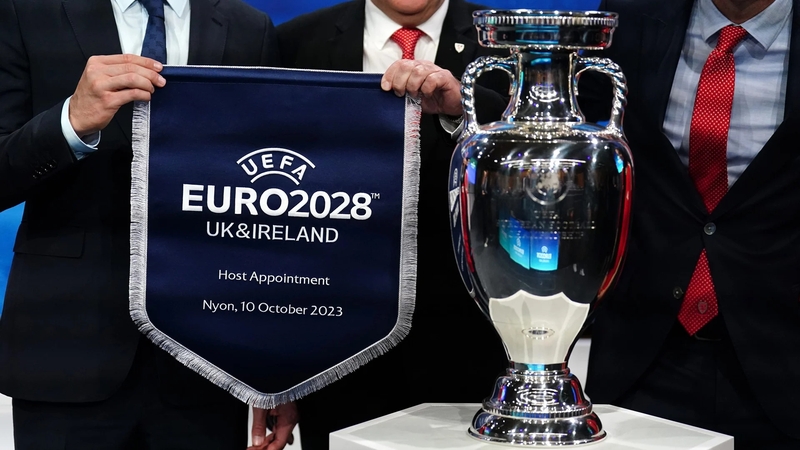Analysis: While the short-term benefits of hosting mega-events are often highlighted, the long-term consequences can be less rosy
This summer's sporting calendar is saturated with sports mega-events. A fortnight from now, we'll have totally forgotten about last night's Euro 2024 final and our attentions will have turned to Paris, where the torch will be lit to mark the opening of the Olympic and later Paralympic Games.
Years of dedication by athletes striving for sporting immortality culminate in the Olympics. While the focus is on the 35 Olympic venues, the Games also serve as a stage for a different kind of competition - one between the world’s governments. Despite the insistence that sport is apolitical, the reality is that diplomats often use these mega-events to advance their national interests.
The arguments for hosting mega-events often revolve around their tangible benefits. In the short term, mega-events promise additional tourism, jobs, and tax revenues. They are touted as a means of catalysing urban regeneration and addressing societal challenges. Proponents of these events claim that they leave behind a positive long-term legacy, offering hope for the future.
We need your consent to load this YouTube contentWe use YouTube to manage extra content that can set cookies on your device and collect data about your activity. Please review their details and accept them to load the content.Manage Preferences
From FAI TV, Ireland and UK to host UEFA EURO 2028
While the short-term benefits of hosting mega-events are often highlighted, the long-term consequences can be less rosy. The economic gains must be weighed against the hefty infrastructural investments needed to host these events. These projects have, moreover, a troubling history of budget overruns, whose burden falls on the taxpayer.
Indeed, concerns about the economic analysis initially caused bean counters at the Department of Finance to baulk at the prospect of Ireland co-hosting the 2028 European football championship with the United Kingdom. Mega-events have also left host cities saddled with empty hotel rooms, rampant real estate speculation, displaced communities, and dilapidated stadiums.
Given the questionable economic benefits, what motivates the hosts of sports mega-events? For most states, the answer lies in the opportunity to gain a significant reputational advantage from their time in the global spotlight, a phenomenon political scientists refer to as 'soft power’.
We need your consent to load this rte-player contentWe use rte-player to manage extra content that can set cookies on your device and collect data about your activity. Please review their details and accept them to load the content.Manage Preferences
From RTÉ Radio 1's News At One, RTÉ Northern Correspondent Conor Macauley reports on work on the redevelopment of Belfast's Casement Park stadium ahead of Euro 2028
Soft power refers to a country's ability to influence others and achieve its objectives through attraction and persuasion rather than using force or coercion. By highlighting accomplishments embodying widely admired ideals and values, states can curate a positive image that encourages others to align with their interests.
Combined with its popularity and reach, the ability of sport to transcend cultural and linguistic barriers makes it a perfect vehicle for states to relay messages to outsiders. The blanket media coverage afforded to modern sports mega-events provides a unique moment for their hosts to exhibit their virtues to a global audience. As such, the temptation to commandeer these spectacles has proven irresistible to democrats and dictators alike.
For example, a well-executed opening ceremony can evoke strong emotions and help hosts sell their national brand. Done cleverly, this ritual weaves together the past, present, and future, highlighting the host country's heritage and traditions while showcasing its modernity through advanced technology, creative choreography, and striking visual effects. For developing countries especially, mega-events serve as a ‘coming out party’. Successfully organising a large-scale event enhances their reputation as efficient, competent, and responsible members of the international community.
We need your consent to load this rte-player contentWe use rte-player to manage extra content that can set cookies on your device and collect data about your activity. Please review their details and accept them to load the content.Manage Preferences
From RTÉ 2fm's Game On, David Sneyd from The42.ie and Miguel Delaney from The Independent on the news that Ireland and the UK will be hosting Euro 2028
Far from being coldly rational, political and commercial decision-makers are influenced by their instinctive affinities or antipathies toward other countries. By providing a positive experience for athletes and visitors, host countries can generate a reservoir of goodwill upon which future negotiators can draw.
Beyond this, mega-events have become a hub around which a broader web of international meetings revolves. Some of these are opportunistic, such as snatched conversations and informal summits between dignitaries invited to the opening ceremony. But most are deliberately organised by trade or foreign ministries to put local expertise in the shop window. Using national sporting celebrities as bait, these meetings cultivate networks of bureaucrats, politicians, and corporate executives to drive trade and investment.
Politicians and officials remain ambivalent about sport's ability to burnish Ireland’s reputation
Ireland will get its shot at strutting on the global stage when it co-hosts Euro 2028 with the UK. Already renowned for its ‘céad míle fáilte’, Ireland should make a consummate tournament host. Equally, there is no room for complacency. Expensive accommodation and inadequate public transportation are just two ways in which Ireland’s international appeal could be dented.
The recent failure to fund Motorsport Ireland's bid to host the World Rally Championship between 2025-2027 suggests that politicians and officials remain ambivalent about sport’s ability to burnish Ireland’s reputation. Sport is prominently featured in many government initiatives, not least its attempts to expand Ireland’s global footprint. Nevertheless, unlike a growing number of states, Ireland does not possess a dedicated sports diplomacy strategy. With Euro 2028 looming, now may be the time to do so. As others are learning, familiarity through sport diplomacy can breed content.
Follow RTÉ Brainstorm on WhatsApp and Instagram for more stories and updates
The views expressed here are those of the author and do not represent or reflect the views of RTÉ


